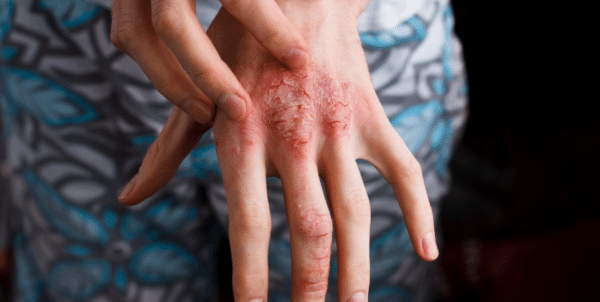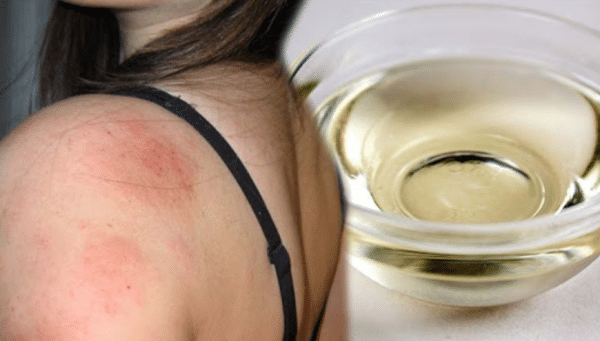According to the NHS, the number of eczema cases registered has increased by 40 percent in the past four years. Eczema can be painful, humiliating, and debilitating, whether you are unfortunate enough to be born with both the skin condition or you acquire it in later life. What can be done to get your skin back on track? Here are some tips to help defeat eczema.
What Is Eczema?

Eczema is skin that is red, flaky, and itchy. Atopic (caused by allergies) is by far the most common form of an eczema flare. Still, people can have contact eczema (flare-up after handling allergens such as rubber or nickel), seborrheic eczema (eczema of the scalp), and discoid (occurring in coin-shaped patches).
Synthetic (human-made corticosteroid cream used for treating skin disorders such as rash, atopic dermatitis, itching, eczema, and psoriasis are topical corticosteroids. Topical corticosteroids have good anti-inflammatory behavior and suppress the immune response as well.
Here Are A Few Types Of Eczema

-
- Persistent Red Patches: Atopic Dermatitis
- Dermatitis Of Seborrhea: Dandruff
- Dermatitis Contact: Redness Itchy
- Dermatitis Of stasis: Rash On Swollen Areas
- Red Bumps On The Hands And Feet With Dyshidrotic Eczema
- Circular Patches: Nummular Eczema
Try Not To Scratch Irritated Skin

For healing, breaking the itch-scratch cycle is essential Scratching can provide the itch with temporary relief. Still, it induces the release of a chemical called histamine, which only causes further itching due to dry skin.
Scratching destroys the skin condition and may permit bacteria that generally live on the surface to get in and start an infection. Keep nails short, and whenever you get the urge to have a scratch, massage the itchy area with moisturizer using the pads of your clean fingertips.
Importance Of Moisturizing

Until they find something that works for them, most individuals will have to try a few therapies. Moisturising is the easiest way of treating eczema. You can have your doctor prescribe multiple emollients, but not all of them will function for everybody. To help trap moisture when the skin is still wet, apply it after a shower. Do this regularly, even if you do not feel an itching sensation.
Going To The Doctor

Your doctor can recommend you to a dermatologist for extreme eczema cases, who can prescribe a steroid cream or ointment, wet wraps, special bandages, or even ultraviolet light therapy. If used long term, steroids can have nasty side effects, but a brief course is perfectly safe. Extreme eczema can induce lichenification if left untreated, which causes the skin to become thick and leathery.
I suggest that the parent give a big embrace to a child to illustrate that touch won’t harm them. People are too often afraid to contact sufferers because they are concerned about causing or getting pain, but eczema is not contagious.
Go Natural

There are plenty of ways you can naturally soothe your skin. Make sure your sheets are cotton, which is kinder to the skin than synthetic fabrics. To avoid scratching, you might also try wearing cotton gloves at night. Oat Bran has been used to treat skin disorders for decades.
Grab a few handfuls of oat bran and pop it in an old pair of tights. To soothe sore skin, apply the bag to your bath, or hang it from your showerhead.
Try aloe vera gel and keep it in the fridge, so it’s calm and soothing. Many sufferers prefer coconut oil: pick an organic, cold-pressed variety and rub it on damp skin.
It’s also necessary to have enough sleep to find ways to relieve stress, such as meditation, yoga, or therapy.
Look Out For Food Related Flare-Ups

For several eczema sufferers, food allergies or sensitivities may be expected. Cow’s milk is a well-known culprit, but eggs, soya, and wheat are also a potential problem. It is worth trying to minimize sugar consumption, refined carbohydrates, and highly processed and deep-fried foods. To see if you can create any ties between what you eat and your eczema state, keep a symptom and food diary. Make sure you eat plenty of foods high in omega-3 fatty acids, such as oily fish, flaxseeds, and walnuts, for happier skin. Choose low glycemic sources of whole grains such as oats, quinoa, and sweet potatoes, as well as low-sugar fruits such as bananas, apples, and pears.
Conclusion
When you have a flare-up, it’s tempting to detach from the world, but isolating yourself is likely to make your symptoms more serious. It would just leave you feeling sad by hiding away, and there is a link between eczema flare and negative emotional states. To be optimistic takes a significant effort, but the pay-off is enormous.
The expression “eczema” derives from a Greek word meaning “to boil over,” and there is a reasonably spot-on etymology. This category of conditions could become painful and humiliating, involving red, itchy, and inflamed skin, but they are also manageable most of the time. Take the time to learn about what affects your eczema, and watch how your skin benefits from the proper treatment and care.



